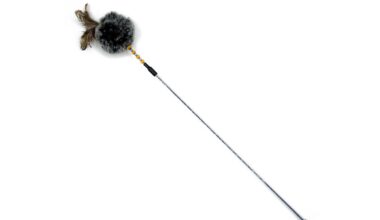Preventing Parasites in Your Puppy: Fleas, Ticks, and Worms
As a new dog owner, understanding how to protect your puppy from parasites is crucial. Fleas, ticks, and worms can pose significant health risks, leading to complications if left untreated. Regularly inspecting your puppy for signs of fleas and ticks is essential. Look for scratching, biting, or skin irritation. Using high-quality preventive products is vital. Select treatments that match your puppy’s weight and age. Consult your veterinarian to identify the best products suitable for your puppy. You might want to consider spot-on treatments, oral medications, or collars. Following the recommended schedule for administering these products is necessary. This will ensure long-lasting protection from these parasites. Additionally, keep your puppy’s living environment clean. Vacuum regularly and wash your puppy’s bedding in hot water. This will help eliminate flea eggs and larvae. Also, limit outdoor exposure to grassy areas during peak flea and tick seasons. Regular grooming is another effective way to catch any early signs of an infestation. Brushing your puppy can prevent matting, and it allows you to check for any parasites lingering in their coat. It’s important to stay proactive in these preventive measures.
Recognizing the Signs of Parasites
Being observant is critical in catching any potential parasite issues early. Each type of parasite presents different symptoms. Fleas can trigger constant scratching, biting, and red spots on your puppy’s skin. Ticks may attach firmly; look for small, dark spots on their skin. Worms, including roundworms or tapeworms, could lead to visible changes like bloating or worms in the feces. If you suspect any signs, timely action is imperative. Promptly consult your veterinarian for treatment options. Blood tests might be required to identify specific parasitic infections. Additionally, preventative medications can be prescribed to avoid future problems. Ensure you’re educated on the various types of worms, as some pose greater risks. Heartworms, for instance, can cause severe respiratory issues if not treated. Your dog’s health requires vigilant observation and timely action. Understanding these signs fosters a proactive approach towards your puppy’s well-being. By scrutinizing every inch of their body during grooming sessions, you ensure that any early warning signs are not missed. Remember, parasites not only affect your puppy’s health. They can also become a risk to your household, so address any concerns quickly.
Proper Nutrition for Healthy Immunity
Aside from preventive treatments, nutrition plays a crucial role in maintaining your puppy’s health and resistance to parasites. Feeding a balanced diet promotes a robust immune system, making it harder for parasites to take hold. High-quality dog food that meets the nutritional requirements for puppies is essential. Look for formulations rich in protein, vitamins, and minerals. The food should contain whole meats, vegetables, and grains, ensuring an optimal nutrient balance. Regular feeding schedules contribute to better digestion and overall health. Avoid random feedings or poor-quality commercial foods filled with fillers and additives. As a supplement, consider adding probiotics to your puppy’s diet. These beneficial bacteria can help maintain digestive health and boost immunity. Hydration is equally important. Always provide fresh water to keep your puppy hydrated, especially after playtime or a walk. A well-hydrated puppy is less likely to experience health issues. Lastly, discuss dietary options and supplements with your veterinarian for additional guidance. The right nutrition, alongside preventive treatments, will significantly enhance your puppy’s defense against parasites. Remember, an ounce of prevention is better than a pound of cure when it comes to your puppy’s health.
Regular Vet Check-ups
Frequent veterinary check-ups are fundamental to your puppy’s health, especially concerning parasite prevention. Early detection can drastically reduce complications associated with parasite infestations. Schedule vaccinations and routine examinations as recommended by your veterinarian. During these appointments, discuss any concerns regarding parasites. Your vet can perform physical examinations and suggest essential diagnostic tests for potential infections. Periodic testing can include fecal examinations, blood tests, and instrumental checks for ticks. Following your vet’s advice ensures you’re providing the best preventive care for your puppy. Always keep records of veterinary visits and treatments. These records help track the effectiveness of prevention methods and can highlight recurring issues. Effective flea and tick control can differ depending on local infestation levels. Likewise, your vet can help determine the best preventive measures suited to your geographical area. Vaccination schedules may also vary based on your puppy’s specific needs. Regular vet visits not only facilitate early detection of parasites but also foster ongoing health management as your puppy grows. Ensuring your puppy is up to date with all vaccinations is vital for avoiding potential health issues.
Creating a Parasite-Free Environment
In addition to treating your puppy, maintaining a clean living environment can prevent parasite infestations. Begin by establishing a grooming routine; regularly brushing your puppy removes loose fur and dirt where fleas may hide. Weekly baths using vet-approved shampoos can help eliminate existing parasites and prevent new ones from taking residence. Pay special attention to areas commonly affected by fleas or ticks. Additionally, regularly vacuuming your home is essential. Dispose of vacuum bags immediately, as flea eggs can remain trapped and hatch later. Don’t forget to treat your garden and outdoor spaces too; fleas and ticks thrive in heavily wooded or grassy areas. Consider using pet-safe pesticides or natural deterrents to manage these threats. When bringing your puppy to public areas, avoid long grass and brush, as these are hotbeds for parasites. Provide an area within your home where your puppy can relax and enjoy their space, but ensure it’s free from potential parasites. A few preventive steps can make all the difference in creating a comfortable, parasite-free haven for your new furry family member. Your efforts will lead to a happier, healthier puppy.
Understanding Treatment Options
If your puppy is diagnosed with a parasite, prompt treatment is crucial. Different parasites require specific approaches. Fleas are typically treated with topical treatments, sprays, or oral medications. Ticks may need to be removed carefully; check with your vet on the best techniques. Worms are often treated with deworming medications, which may vary based on the type of worm. These medications typically kill adult worms and, in some cases, prevent eggs from hatching. After treatment, your vet may recommend follow-up tests to confirm the parasites’ elimination. It’s critical to follow your veterinary advice regarding medication dosages and administration well. Adherence ensures a successful outcome and prevents future reinfestations. In cases of severe infestations, additional treatments may be necessary. Always monitor your puppy closely for any side effects from medications. Occasionally, gastrointestinal disturbances or lethargy can occur during treatment. Maintain communication with your veterinarian to address concerns that may arise. Prompt intervention and ongoing management are essential elements to consider when dealing with parasites. Make informed decisions to ensure your puppy remains healthy and happy.
Conclusion: A Healthy and Happy Puppy
Ultimately, the goal of any first-time dog owner is to foster the health and well-being of their puppy. Understanding the potential dangers posed by fleas, ticks, and worms empowers you to take action. By implementing a comprehensive preventive strategy, you help protect your puppy from adverse health effects. Regular checks, proper nutrition, and consistent veterinary visits play an integral role in ensuring your puppy thrives. Additionally, creating a clean living environment is equally essential in deterring parasites. Remember, the earlier you intervene and pursue preventative measures, the better. Share this knowledge with fellow dog owners, as it helps create awareness around best practices. The bond shared with your puppy flourishes when both of you are healthy. Advocate for their health and well-being, taking every possible step to ensure they grow into a robust and lively dog. Enjoy the journey ahead and the unconditional love that your puppy brings into your life. With these tips in mind, you have equipped yourself with the tools needed to create a lasting, loving relationship with your new furry companion. Healthy and happy puppies lead to vibrant, joyful families.


